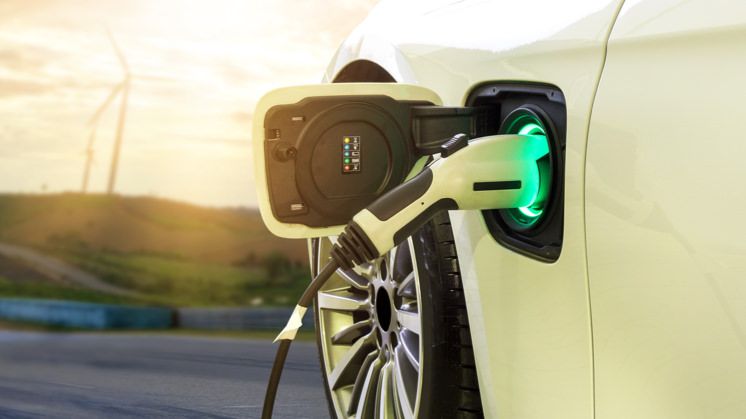Electric car batteries to charge in five minutes
Batteries are very important in an electric car because it's the batteries that power the car. The is a need for the car to recharge faster for more people to be sold with the idea of fully going electric.


Batteries are very important in an electric car because it's the batteries that power the car. There is a need for the car to recharge faster for more people to be sold with the idea of fully going electric. Compared to petrol or diesel they can fuel their cars in few minutes, therefore it's also essential to have chargers that can recharge in few minutes, currently, some chargers can charge EVs in five minutes.
Electric vehicles are a vital part of the action to tackle the climate crisis but running out of charge during a journey is a worry for drivers. The new lithium-ion batteries were developed by the Israeli company StoreDot and manufactured by Eve Energy in China on standard production lines.
StoreDot already has an extremely fast-charging battery in phones, drones, and scooters and around 1,000 batteries for electric vehicles. Several companies have partnered such as Daimler, BP, Samsung and TDK have invested in StoreDot, together they raised $130m.
The batteries can be fully charged in five minutes but this would require higher-powered chargers than those used now. Using available charging infrastructure, StoreDot is aiming to deliver 100 miles of charge to a car battery in five minutes in 2025.
According to CEO of StoreDot, Doron Myersdorf, The number one barrier to the adoption of electric vehicles is no longer cost, it is range anxiety, You’re either afraid that you’re going to get stuck on the highway or you’re going to need to sit in a charging station for two hours. But if the experience of the driver is exactly like fueling a petrol or diesel car, this whole anxiety goes away.
Doron said that a five-minute charging lithium-ion battery was considered to be impossible, they are not releasing a lab prototype, instead, they are releasing engineering samples from a mass production line. This demonstrates it is feasible and it’s commercially ready.
The now used Li-ion batteries use graphite as one electrode, into which the lithium ions are pushed to store charge. But when these are rapidly charged, the ions get congested and can turn into metal and short circuit the battery.
The StoreDot battery replaces graphite with semiconductor nanoparticles into which ions can pass more quickly and easily. These nanoparticles are currently based on germanium, which is water-soluble and easier to handle in manufacturing.
But StoreDot plans to use silicon, which is much cheaper, and it expects these prototypes later this year. Myersdorf said the cost would be the same as existing Li-ion batteries.
Myerdorf says the bottleneck to extra-fast charging is no longer the battery. There is a need for charging stations and grids that supply them to be upgraded. Therefore they are working with BP. Currently, there are many BP stations and they need to stay woke because if not in 10 years to come they will be obsolete. After all, the new oil will be batteries. Dozens of companies around the world are developing fast-charging batteries, with Tesla, Enevate, and Sila Nanotechnologies all working on silicon electrodes. Others are looking at different compounds, such as Echion which uses niobium oxide microparticles.
StoreDot’s battery seems like a dream come true for environmentalists and electric car fans alike, but they are not the only ones pursuing this research. Tesla is another notable company among the dozens of organizations also working on an improved battery. StoreDot’s revolutionary battery and the intense competition in the industry may mean we can expect more innovation to improve electric vehicles in the near future. Research by Wang’s group is being developed by the company EC Power, which he founded. It carefully increases the temperature of the battery to 60C, which enables the lithium ions to move faster, but avoids the damage to the battery usually caused by heat. He said this allowed a full charge in 10 minutes.
Part of article: //www.theguardian.com/environment/2021/jan/19/electric-car-batteries-race-ahead-with-five-minute-charging-times




